24/7 Helpline:
(866) 899-221924/7 Helpline:
(866) 899-2219
Learn more about Medication-assisted Treatment centers in Marion County
Other Categories in Marion County

Other Insurance Options

Carleon

GEHA

Health Net

Self-pay options

Coventry Health Care

Medical Mutual of Ohio

BlueShield

Covered California

Group Health Incorporated
Beacon

Sutter

Excellus

UnitedHealth Group

Molina Healthcare

Highmark

Private insurance

Premera

American Behavioral

Magellan

United Health Care

Preferred Family Healthcare
Preferred Family Healthcare is located in Hannibal, Missouri. Preferred Family Healthcare provides a...

Turning Point Recovery Centers
Turning Point Recovery Centers, located in Hannibal, Missouri, is an alcohol and drug treatment prog...

Montco Recovery Center
The Montco Recovery Center is a private rehab center in Philadelphia, Pennsylvania, that focuses on ...

The Consortium
The Consortium is a private rehab located in Philadelphia, Pennsylvania. The Consortium specializes ...

Philadelphia Consultation Center
Philadelphia Consultation Center is a private rehab located in Philadelphia, Pennsylvania. Philadelp...

Merakey Parkside Recovery
Merakey Parkside Recovery, formerly known as NHS Parkside Recovery, provides treatment for substance...

Charles O’Brien Center for Addiction Treatment
Charles O'Brien Center for Addiction Treatment, part of the University of Pennsylvania Health System...

SOAR Corporation
SOAR Corporation is a private rehab located in Philadelphia, Pennsylvania. SOAR Corporation speciali...

Alpha and Omega Recovery Services
A and O Recovery Services is a non-profit rehab located in Philadelphia, PA. A and O Recovery Servic...

Belmont Behavioral Health Hospital
Belmont Behavioral Hospital is located in Philadelphia, Pennsylvania. Belmont Behavioral Center prov...

Wedge Recovery Centers – South Office
Wedge Recovery Centers – South Office is a private rehab located in Philadelphia, Pennsylvania. Wedg...

Philadelphia VA Medical Center – Addiction Recovery Unit
Philadelphia VA - Corporal Michael J. Crescenz VA Medical Center provides Addiction Recovery service...

Asociacion Puertorriquenos en Marcha – Rising Sun Avenue
Asociacion Puertorriquenos en Marcha – Rising Sun Avenue is a private rehab located in Philadelphia,...

WES Health Centers – Outpatient Center
WES Health Centers – Outpatient Center is a private rehab located in Philadelphia, Pennsylvania. WES...

Gaudenzia
Gaudenzia is located in Philadelphia, Pennsylvania. Gaudenzia offers a continuum of care to adults d...

Community Council for Mental Health
Community Council Health Systems is a private rehab located in Philadelphia, PA. Community Council H...

COMHAR – Strawberry Manison Health
COMHAR – Strawberry Manison Health is a private rehab located in Philadelphia, Pennsylvania. COMHAR ...

Greater Philadelphia Asian Social Service Center
Greater Philadelphia Asian Social Service Center is a non-profit rehab located in Philadelphia, Penn...

Kirkbride Center
The Kirkbride Center is a 302 bed dual diagnosis addiction treatment center on an urban campus site ...

Wedge Recovery Centers – Venango Office
Wedge Recovery Centers – Venango Office is a private rehab located in Philadelphia, Pennsylvania. We...

Gaudenzia – Together House
Gaudenzia – Together House is an addiction treatment center for men that specializes in providing a ...

Healing Way
Healing Way is a private rehab located in Philadelphia, Pennsylvania. Healing Way specializes in the...

Northeast Behavioral Health – Friends Helping Friends
Northeast Behavioral Health – Friends Helping Friends is a private rehab located in Philadelphia, Pe...

PATH – People Acting to Help
PATH – People Acting to Help is a private rehab located in Philadelphia, Pennsylvania. PATH – People...

NHS – Germantown Avenue
NHS – Germantown Avenue is a private rehab located in Philadelphia, Pennsylvania. NHS – Germantown A...

Interim House West
Interim House West is an inpatient rehab located in Philadelphia, PA. Interim House West specializes...

RHD Lower Merion Counseling Services
RHD Lower Merion Counseling Services is a private rehab located in Philadelphia, Pennsylvania. RHD L...

Casa de Conse Jeria Drug and Alcohol
Casa de Conse Jeria Drug and Alcohol is a private rehab located in Philadelphia, Pennsylvania. Casa ...

COMHAR
COMHAR is a private, nonprofit mental health and substance abuse rehabilitation facility in Philadel...

Teen Challenge Philadelphia – Women’s Home
Teen Challenge Philadelphia – Women’s Home is a private rehab located in Philadelphia, Pennsylvania....

Gaudenzia – Washington House
Gaudenzia - Washington House is located in Philadelphia, Pennsylvania. Gaudenzia - Washington House ...

CORA Services
CORA Services - Verree Road offers outpatient treatment for children, adolescents and adults with su...

Freedom House
Freedom House is a private rehab located in Philadelphia, PA. Freedom House specializes in the treat...

Mercy Philadelphia Hospital – Behavioral Health
Mercy Philadelphia Hospital - Behavioral Health offers outpatient and inpatient treatment for indivi...

Interim House
Interim House is a private rehab located in Philadelphia, Pennsylvania. Interim House specializes in...

NHS – Knights Road
NHS – Knights Road is a private rehab located in Philadelphia, Pennsylvania. NHS – Knights Road spec...

Community Behavioral Health
Community Behavioral Health is a non-profit rehab located in Philadelphia, Pennsylvania. Community B...

Intercultural Family Services
Intercultural Family Services is a private rehab located in Philadelphia, Pennsylvania. Intercultura...

New Life
New Life is a private rehab located in Philadelphia, Pennsylvania. New Life specializes in the treat...

WES Health Centers – Adult Outpatient Center
WES Health Centers – Adult Outpatient Center is a private rehab located in Philadelphia, Pennsylvani...

Gaudenzia – Women and Children Program
Guadenzia- Women’s and Children’s Program offers specialized substance use disorder treatment for pr...

Livengrin Foundation – Northeast Philadelphia
Livengrin Foundation - Northeast Philadelphia is a premier provider of treatment and recovery servic...

Horizon House at Susquehanna Park
Horizon House at Susquehanna Park is a private rehab located in Philadelphia, Pennsylvania. Horizon ...

Saint Joseph Hospital – Detox and Rehabilitation Services
Saint Joseph Hospital – Detox and Rehabilitation Services is a private rehab located in Philadelphia...

Men and Women for Human Excellence
Men and Women for Human Excellence is located in Philadelphia, Pennsylvania. Men and Women for Human...

Wedge Recovery Center – Juniper Office
Wedge Recovery Center – Juniper Office is a private rehab located in Philadelphia, Pennsylvania. Wed...

Hispanic Community Counseling Services – 3156 Kensington Avenue
Hispanic Community Counseling Services – 3156 Kensington Avenue is a private rehab located in Philad...

Southwest Nu Stop – Woodland
Southwest Nu Stop – Woodland is a private rehab located in Philadelphia, Pennsylvania. Southwest Nu ...

Philadelphia VA Medical Center – Behavioral Health Service
Philadelphia VA Medical Center–Behavioral Health Service provides comprehensive mental health and ad...

Greenridge Counseling Center
Greenridge Counseling Center is a private rehab located in Philadelphia, Pennsylvania. Greenridge Co...

Interact – Greenridge Counseling Center
Interact - Greenridge Counseling Center provides behavioral health services for children and adults ...

Congreso de Latinos Unidos – Programa Horizontes
Congreso de Latinos Unidos – Programa Horizontes is a non-profit rehab located in Philadelphia, Penn...

Hispanic Community Counseling Services – 3221 Kensington Avenue
Hispanic Community Counseling Services – 3221 Kensington Avenue is a private rehab located in Philad...

The Bridge
The Bridge is a non-profit rehab located in Philadelphia, Pennsylvania. The Bridge specializes in th...

Kensington Hospital – Addiction Services
Kensington Hospital – Addiction Services is a private rehab located in Philadelphia, Pennsylvania. K...

Thomas Jefferson University Hospital – Inpatient Psychiatry
Thomas Jefferson University Hospital – Inpatient Psychiatry is a private rehab located in Philadelph...

Riverside Care
Riverside Care is a private rehab located in Philadelphia, Pennsylvania. Riverside Care specializes ...

Livengrin Foundation – Center City Philadelphia
Livengrin Foundation - Center City Philadelphia is a premier provider of treatment and recovery serv...

Ready, Willing & Able
Ready, Willing & Able provides transitional work, occupational training, housing and support service...

Gaudenzia – Henry Avenue
Gaudenzia – Henry Avenue is an accredited Philadelphia, PA drug and alcohol rehab that provides addi...

Limitless Recovery
Limitless Recovery provides top quality comprehensive treatment and support to those recovering from...

Achievement Through Counseling and treatment – (ACT II)
Achievement Through Counseling and treatment – (ACT II) is a private rehab located in Philadelphia, ...

Addiction Medicine Health Advocates
Addiction Medicine Health Advocates is a private, non-profit agency dedicated to help men and women ...

Resources for Human Development – New Start II at Jackson Street
New Start II at Jackson Street is a long-term residential treatment facility that provides intensive...

Belmont Behavioral Hospital – Northeast
Belmont Behavioral Hospital is located in Philadelphia, Pennsylvania. Belmont Behavioral Center prov...

Project HOME – St. Elizabeth’s Recovery Residence
Project HOME - St. Elizabeth's Recovery Residence is a recovery residence for men, providing 24 full...

Adult and Teen Challenge of Philadelphia
Pennsylvania Adult and Teen Challenge (PAATC) is a faith based dual diagnosis addiction treatment ce...

Assessment and Treatment – Alternatives
Assessment and Treatment – Alternatives is a private rehab located in Philadelphia, Pennsylvania. As...

Womanspace
Womanspace is a private rehab for women located in Philadelphia , PA. Womanspace specializes in the ...

Merakey Philadelphia Knights Road
Merakey Philadelphia Knights Road is a private rehab located in Philadelphia, Pennsylvania. Merakey ...

Fairmount Behavioral Health System
Located in Philadelphia, Pennsylvania, Fairmount Behavioral Health System provides mental health and...

JEVS Human Services
JEVS Human Services is a drug and alcohol rehab and community center in Philadelphia, PA. They provi...

Teen Challenge Training Center
Teen Challenge Training Center is located in Philadelphia, Pennsylvania. Teen Challenge Training Cen...

Gaudenzia – WINNER Program
Gaudenzia - WINNER Program offers residential treatment for women struggling with substance abuse. G...








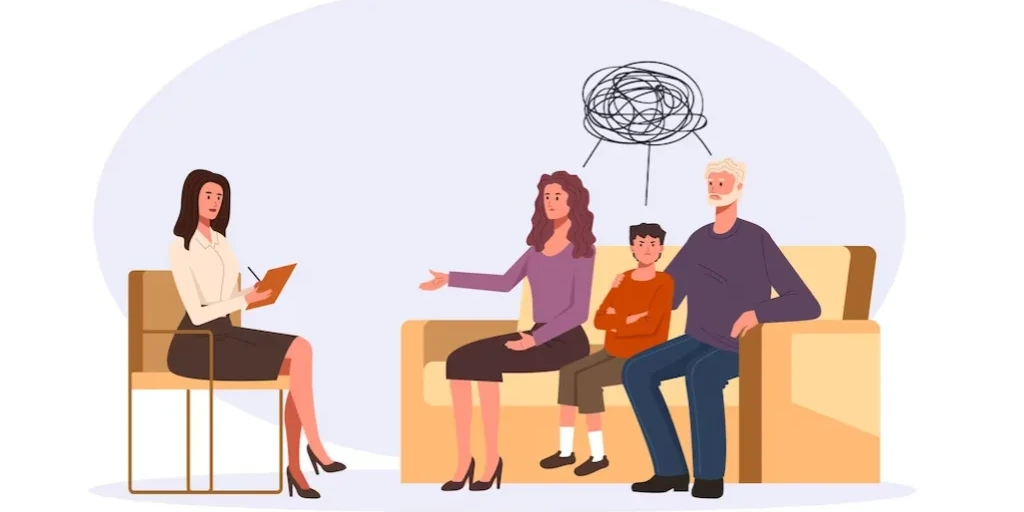

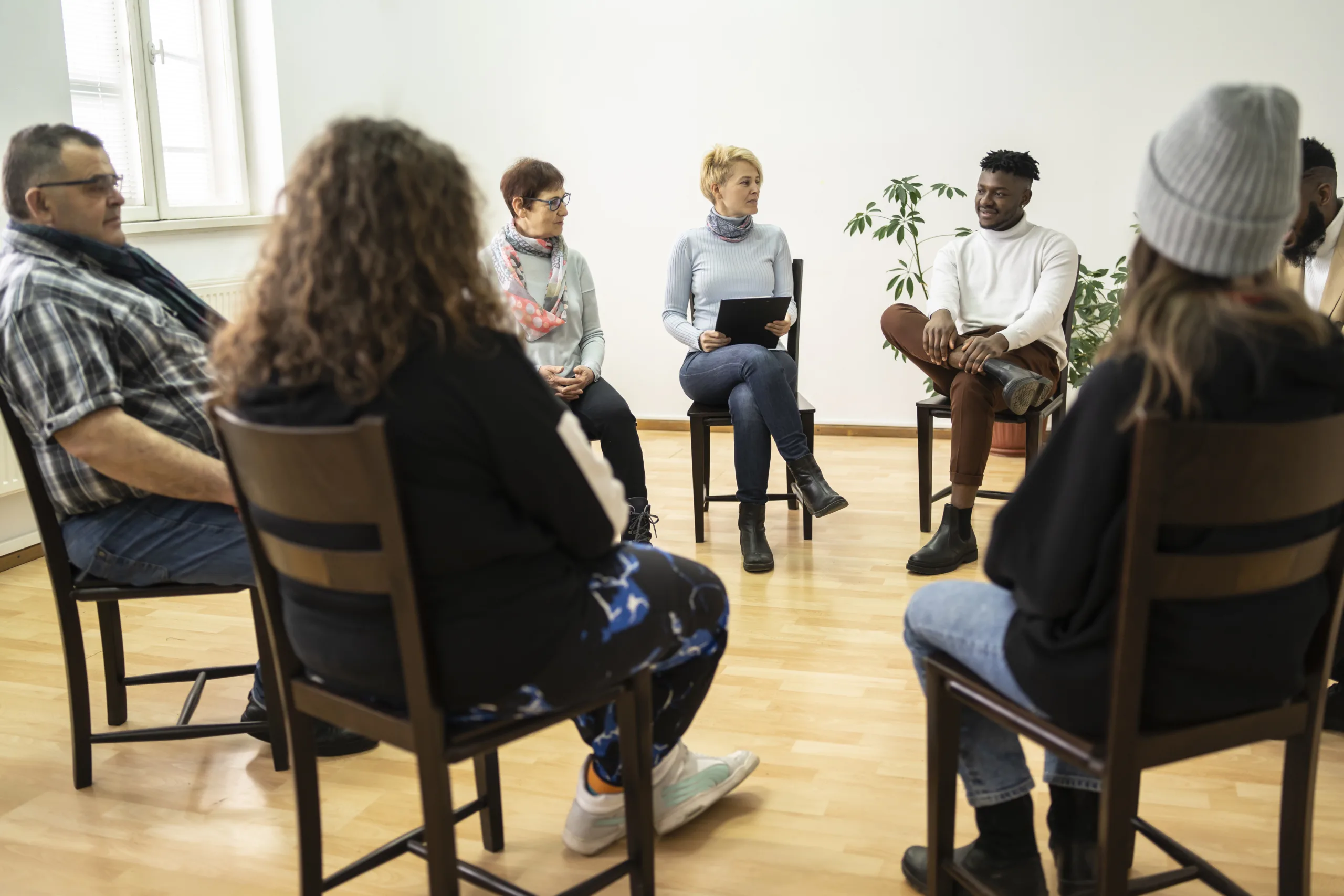





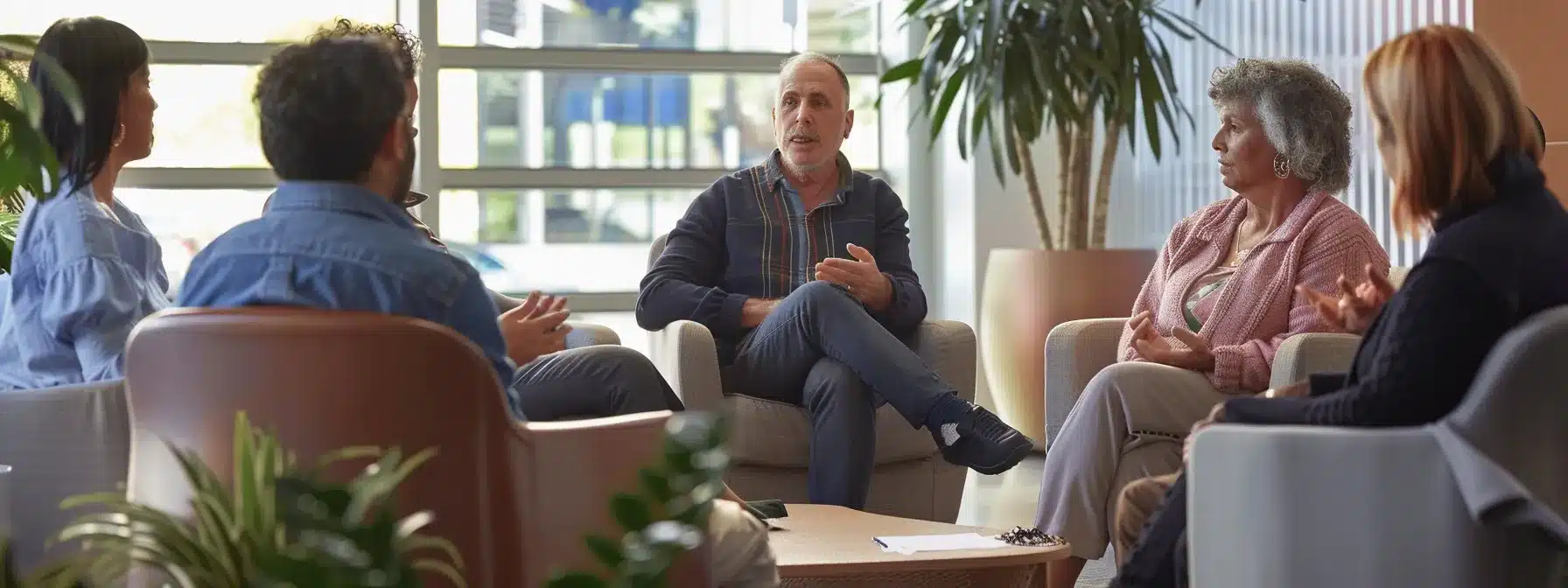
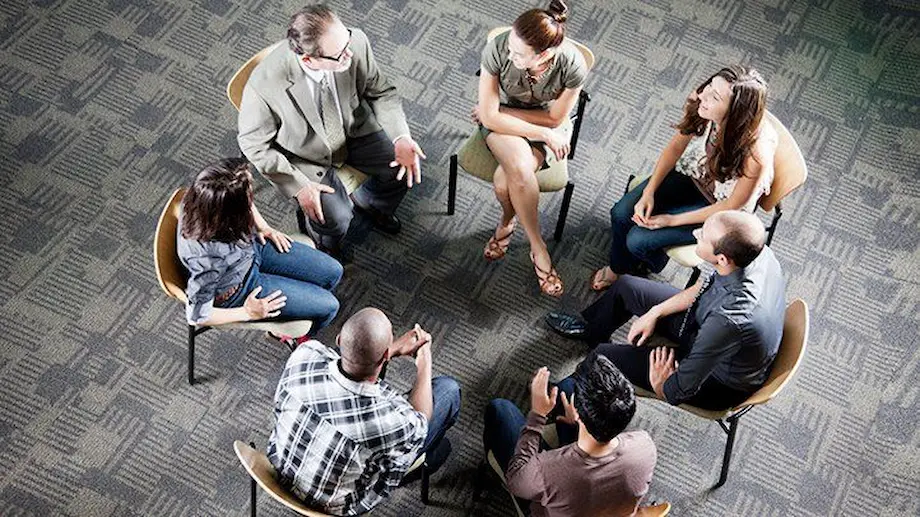
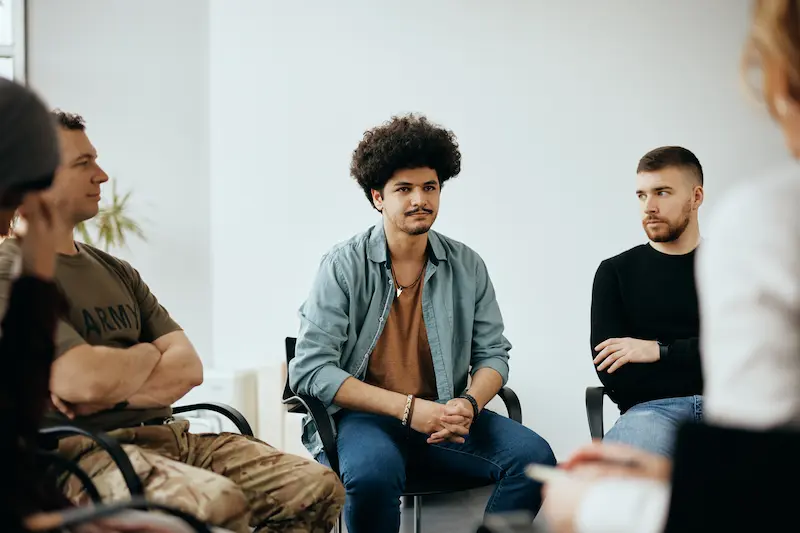




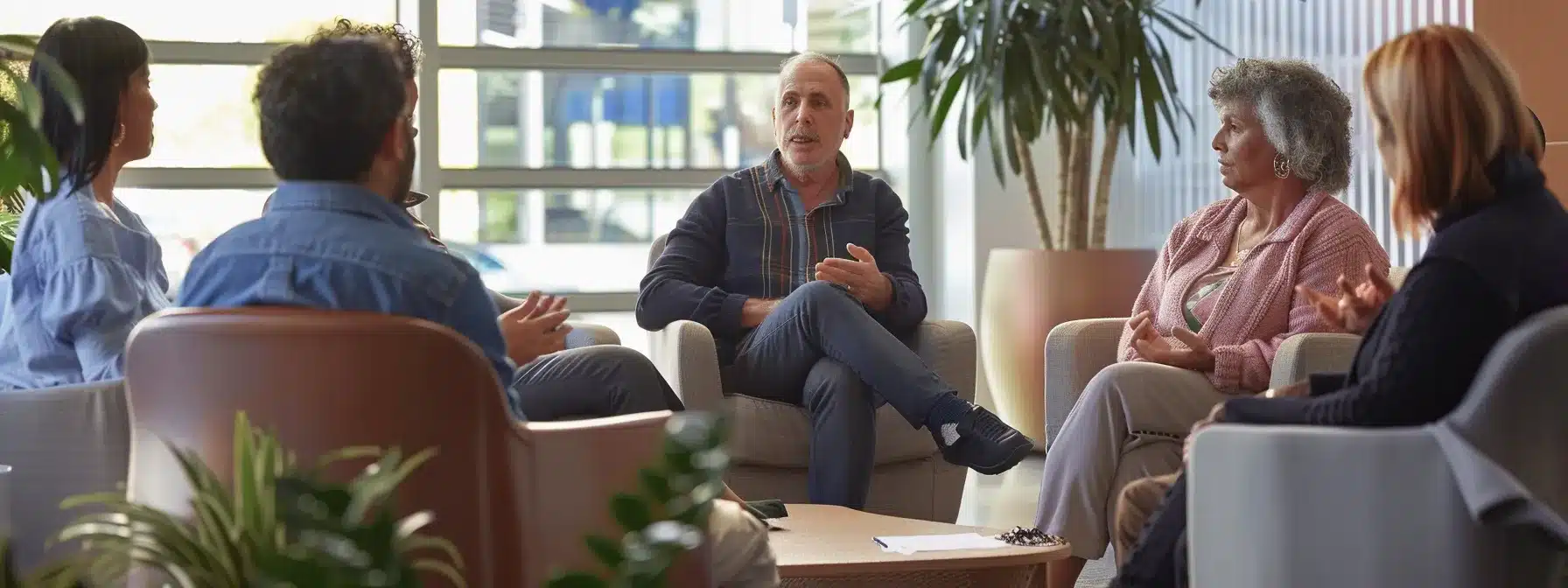


Weems Community Mental Health Center – Neshoba County
Weems Community Mental Health Center – Neshoba County is a private rehab located in Philadelphia, Mi...

Mark Twain Behavioral Health
Mark Twain Behavioral Health is a private rehab located in Hannibal, Missouri. Mark Twain Behavioral...

Preferred Family Healthcare – YCPRC
Preferred Family Healthcare - YCPRC offers outpatient treatment for mental health issues. Preferred ...

Saint Lawrence Psychiatric Center – Day Treatment
Saint Lawrence Psychiatric Center – Day Treatment is a public rehab located in Philadelphia, New Yor...

Arbor House Supportive Living Program
Arbor House Supportive Living Program in Hannibal, New York, is a long-term residential treatment pr...

My Sister’s Place
My Sister’s Place is a drug and alcohol treatment center in Philadelphia, PA, and a Maternal Addicti...

Rehab After Work – Center City
Rehab After Work - Center City offers intensive outpatient and outpatient treatment for adolescents ...

Accessible Recovery Services
Accessible Recovery Services - Arch Street provide the very best comprehensive medical care to those...

CDA of Greater Northeast
CDA of Greater Northeast is a private rehab located in Philadelphia, Pennsylvania. CDA of Greater No...

Rehab After Work
Rehab After Work offers intensive outpatient and outpatient treatment for adolescents and adults wit...

Art House
Art House is a private rehab located in Philadelphia, Pennsylvania. Art House specializes in the tre...

AlAnon and Alateen
AlAnon and Alateen is a private rehab located in Philadelphia, Pennsylvania. AlAnon and Alateen spec...

Shalom
Shalom is a private rehab located in Philadelphia, Pennsylvania. Shalom specializes in the treatment...

Thomas Jefferson University Hospital – Narcotic Addiction Rehab
Thomas Jefferson University Hospital – Narcotic Addiction Rehab is a private rehab located in Philad...

Mazzoni Center – Open Door Counseling
Mazzoni Center – Open Door Counseling is a private rehab located in Philadelphia, Pennsylvania. Mazz...

Everything Must Change Recovery Center
Everything Must Change Recovery Center is a private rehab located in Philadelphia, Pennsylvania. Eve...

John F Kennedy Behavioral Health – Satellite Offices
John F Kennedy Behavioral Health – Satellite Offices is a private rehab located in Philadelphia, Pen...

Community Outpatient – Elderly
Community Outpatient – Elderly is a private rehab located in Philadelphia, Pennsylvania. Community O...

Gaudenzia – Re – Entry
Gaudenzia - Re-Entry is located in Philadelphia, Pennsylvania. Gaudenzia - Re-Entry offers transitio...

Minsec at Erie Outpatient
Minsec at Erie Outpatient is a private rehab located in Philadelphia, Pennsylvania. Minsec at Erie O...

JEVS Human Services – Mental Health Services
JEVS Human Services – Mental Health Services is a private rehab located in Philadelphia, Pennsylvani...

COMHAR – Residential
COMHAR – Residential is a private rehab located in Philadelphia, Pennsylvania. COMHAR – Residential ...

Southwest Nu Stop North
Southwest Nu Stop North is a private rehab located in Philadelphia, Pennsylvania. Southwest Nu Stop ...

Addiction Psychologist Associates Philadelphia
Addiction Psychologist Associates Philadelphia is a private rehab located in Philadelphia, PA. Addic...

John F Kennedy Behavioral Health
John F Kennedy Behavioral Health is a private rehab located in Philadelphia, Pennsylvania. John F Ke...

Al Behavioral Healthcare Center
Al Behavioral Healthcare Center is a private rehab located in Philadelphia, Pennsylvania. Al Behavio...

Harmon House Women’s Recovery House
Harmon House Women’s Recovery House is a private rehab located in Philadelphia, Pennsylvania. Harmon...

Juniata Community Mental Health
Juniata Community Mental Health is a private rehab located in Philadelphia, Pennsylvania. Juniata Co...

The Cedars Alcohol and Drug Treatment Center
The Cedars Alcohol and Drug Treatment Center is a private rehab located in Philadelphia, Pennsylvani...

Gaudenzia – New Image
Gaudenzia - New Image is located in Philadelphia, Pennsylvania. Gaudenzia - New Image is a residenti...

John F Kennedy Behavioral Health – Centro de Servicios
John F Kennedy Behavioral Health – Centro de Servicios is a private rehab located in Philadelphia, P...

AA – Alcoholics Anonymous – Castor Avenue
Alcoholics Anonymous (AA) - Castor Avenue is a nonprofit rehab located in Philadelphia, Pennsylvania...

AA – Alcoholics Anonymous – Thursday Nighters
AA – Alcoholics Anonymous – Thursday Nighters is a non-profit rehab located in Philadelphia, Pennsyl...

AA – Alcoholics Anonymous – Chestnut Street
AA - Alcoholics Anonymous - Chestnut Street is an international fellowship of men and women who have...

Sobriety Through Outpatient
Sobriety Through Outpatient is a private rehab located in Philadelphia, Pennsylvania. Sobriety Throu...

AA – Alcoholics Anonymous – 444 3rd
AA – Alcoholics Anonymous – 444 3rd is a non-profit rehab located in Philadelphia, Pennsylvania. AA ...

Achievement Through Counseling and treatment – (ACT I)
Achievement Through Counseling and treatment – (ACT I) is a private rehab located in Philadelphia, P...

John F Kennedy Behavioral Health – Poplar Guidance Clinic
John F Kennedy Behavioral Health – Poplar Guidance Clinic is a public rehab located in Philadelphia,...

ReEnter
ReEnter is a private rehab located in Philadelphia, Pennsylvania. ReEnter specializes in the treatme...

New Journeys in Recovery
New Journeys in Recovery is a non-profit rehab located in Philadelphia, Pennsylvania. New Journeys i...

Dynamic Dollar
Dynamic Dollar is a private rehab located in Philadelphia, Pennsylvania. Dynamic Dollar specializes ...

Northeast Behavioral Health Center
Northeast Behavioral Health Center is a private rehab located in Philadelphia, Pennsylvania. Northea...

Consortium – Drug Abuse
Consortium – Drug Abuse is a private rehab located in Philadelphia, Pennsylvania. Consortium – Drug ...

AA – Alcoholics Anonymous – 3Rd street
AA – Alcoholics Anonymous – 3Rd street is a non-profit rehab located in Philadelphia, Pennsylvania. ...

Riverside Care – West Lehigh Avenue
Riverside Care – West Lehigh Avenue is a private rehab located in Philadelphia, Pennsylvania. Rivers...

COMHAR – Specialized Services
COMHAR – Specialized Services is a private rehab located in Philadelphia, Pennsylvania. COMHAR – Spe...

Spring Garden Counseling
Spring Garden Counseling is a private rehab located in Philadelphia, Pennsylvania. Spring Garden Cou...

Self Help Movement
Self Help Movement is a drug and alcohol treatment facility located in the Far Northeast section of ...

Wives Self Help Foundation
Wives Self Help Foundation is a private rehab located in Philadelphia, Pennsylvania. Wives Self Help...

Gaudenzia – Outreach II
Gaudenzia - Outreach II addresses the needs of chemically dependent adults and provides specialized ...

Philadelphia Mental Health Center
Philadelphia Mental Health Center is a private rehab located in Philadelphia, Pennsylvania. Philadel...

Northeast Behavioral Health
Northeast Behavioral Health is a private rehab located in Philadelphia, Pennsylvania. Northeast Beha...

Solution House
Solution House is a private rehab located in Philadelphia, Pennsylvania. Solution House specializes ...

PRO – ACT Recovery Training Center
PRO – ACT Recovery Training Center is a private rehab located in Philadelphia, Pennsylvania. PRO – A...

Women’s Institute for Family Health
Women’s Institute for Family Health is a private rehab located in Philadelphia, Pennsylvania. Women’...

Devereux Community – Outpatient
Devereux Community – Outpatient is a private rehab located in Philadelphia, Pennsylvania. Devereux C...

All Professional Medical and Rehabilitation
All Professional Medical and Rehabilitation is a private rehab located in Philadelphia, Pennsylvania...

DUI Institute
DUI Institute is a private rehab located in Philadelphia, Pennsylvania. DUI Institute specializes in...

Citizens Acting Together Can Help – Penrose Place
Citizens Acting Together Can Help - Penrose Recovery Program is a non-profitrehab located in Philade...

Belmont Northeast Behavioral Hospital
Belmont Northeast Behavioral Hospital is a community-based program that provides a range of services...

COMHAR – Outpatient
COMHAR – Outpatient is a private rehab located in Philadelphia, Pennsylvania. COMHAR – Outpatient sp...

Greystone Program
Greystone Program is a private rehab located in Philadelphia, Pennsylvania. Greystone Program specia...

Wedge Recovery Centers – Logan Office
Wedge Recovery Centers – Logan Office is a private rehab located in Philadelphia, Pennsylvania. Wedg...

Alcohol Drug Rehab
Alcohol Drug Rehab is a private rehab located in Philadelphia, Pennsylvania. Alcohol Drug Rehab spec...

Progressions Behavioral Health Services – Philadelphia
Progressions Behavioral Health Services is an outpatient treatment program that provides services to...

Menergy
Menergy offers outpatient treatment for individuals with alcohol and/or substance addiction. The pro...

Women In Transition
Women In Transition offers outpatient services for women who need treatment for Substance Addiction....

The Council of Southeast Pennsylvania – PRO – ACT
The Council of Southeast Pennsylvania - PRO-ACT provides prevention, intervention, and addiction rec...

Fresh Start Now
Fresh Start Now is a private rehab located in Philadelphia, Pennsylvania. Fresh Start Now specialize...

New Jerusalem Now
New Jerusalem Now is a nonprofit residential addiction recovery community located on the west side o...

Northeast Behavioral Health – Youth Program
Northeast Behavioral Health – Youth Program is a private rehab located in Philadelphia, Pennsylvania...

NHS Human Services – Germantown Recovery
Merakey Behavioral Health is a private rehab located in Philadelphia, PA. Merakey Behavioral Health ...

Crossroads – Philadelphia
Crossroads – Philadelphia is a private rehab located in Philadelphia, Pennsylvania. Crossroads – Phi...

Center City Recovery
Center City Recovery is a private Premier Drug & Alcohol Treatment Center located in Philadelphia, P...

Clean and Sober – Residential
Clean and Sober – Residential is a private rehab located in Philadelphia, Pennsylvania. Clean and So...

Growth and Development Program
Growth and Development Program is a private rehab located in Philadelphia, Pennsylvania. Growth and ...

Ambrosia Treatment Center
Ambrosia Treatment Center is a substance use disorder, mental health, and dual diagnosis treatment c...

Albert Einstein Medical Center – Behavioral Health
Albert Einstein Medical Center – Behavioral Health is a private rehab located in Philadelphia, Penns...

Northeast Community Center Behavioral Health
Northeast Community Center Behavioral Health is a private rehab located in Philadelphia, PA. Northea...

The National Academy
The National Academy has provided community-based drug and alcohol treatment to juveniles in Alleghe...

Connection Training Services
Connection Training Services through its Access to Recovery program helps low-income individuals who...














